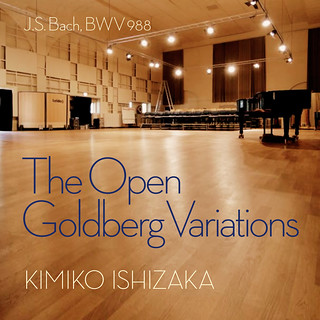
Last Monday was marked on my calendar as the release of The Open Goldberg Variations performed by Kimiko Ishizaka. Why was that special? It was the release of a crowd-funded professionally performed, recorded, and produced recording and score of Bach's Goldberg Variations into the public domain. It is a throwback to the old system of patronage for individuals supporting artists and their works.
Arguably, the enduring contribution of this is the release into the public domain of both the score as well as the MuseScore source file. As programmers know, the release of the source file in an open format with an open source implementation means that this will be available for re-formatting, re-publication, and combining with other similarly licensed works forever. It also means that the score has been examined, not only by those who were directly funded by the project, but by anyone who had the inclination and interest to participate in the project over the past year. The process was open for examination not only for correctness, but also feedback and ideas. No small matter in piece that was meant for a double manual (keyboards) of a harpsichord instead of the single keyboard of a piano. While the notes may be by J. S. Bach, how it is presented and arranged so a pianist can play it when the physical layout of the instrument is different then intended matters. The challenges of this have lead to improvements on the open source MuseScore composition and notation program (and I for one am waiting for the release that includes these improvements to come out). Aaron Copland (and others) have stated that music is a collaboration between composer, performer and audience. In many cases, the third is often diminished, reduced to paying for tickets, recordings, and donations. But here, the fact that the audience could contribute was taken seriously.
I'm already familiar with the piece from the 1955 Glenn Gould recording. And since the release of The Open Goldberg Variations I have had this playing in the background continuously while working. Which, come to think of it, is not much different than the original purpose of the piece, to provide something to be played by Johann Goldberg to play for the Russian Count Kaiserling to cheer him up during his insomnia. And last night when everyone else in the household went to bed, I stayed up to listen to this with a copy of the public domain score (from MuseScore.com) in front of me.
Looking at the score, one obvious note is the utter absence of dynamics and tempo markings. Which leaves considerable room for interpretation. The range of the 30 variations (plus the base Aria and final Area da Capoe è Fine) allows the pianist to show her range, and Ishizaka provides something to hear. As expected, she does not make the same choices as Gould. And she does not seem to be in as much of a hurry as Gould was. And the recording became a delight as she worked her way through the variation, each with its own feel, even with each repeat.
Here in Pittsburgh, I've had the please of being a part of an experiment by the Pittsburgh Symphony to involve a part of the audience as part of its blog. Because for the audience to take its place in the three aspects of composer/performer/audience there should be more response than only our monetary support of institutions, but to contribute to criticism and direction of the art. And this project pushed that in a way not common today.
Is this model sustainable? Since it was funded through Kickstarter, the professionals involved did indeed get paid. Looking at Kimiko Ishizaka's website, she seems to have a nice international concert schedule with many recent and future bookings that are easily attributable to her participation in this project and the Well Tempered Clavier (which is a potential following project). Similar to programmers making a name and reputation for themselves by contributing to open source projects, Ishizaka seems to be taking advantage of the additional exposure coming from her participation. And similarly to open source, the observation is that professional quality work on well run and managed projects leads to high quality products and opens leads on future work.
If you have any interest in listening to classical music, I highly recommend downloading the recording (MP3 and FLAC available at Soundcloud below). If you want to follow along with the score, or if you are thinking of actually playing this yourself, get the score from MuseScore.com.
2 comments:
Wonderful article, thank you. One comment - "Ishizaka" is misspelled throughout.
Best,
Robert Douglass
PS - Fill out this form and I'll send you a CD when they become available. http://www.opengoldbergvariations.org/review-open-goldberg-variations-and-get-double-cd-free#
Post a Comment